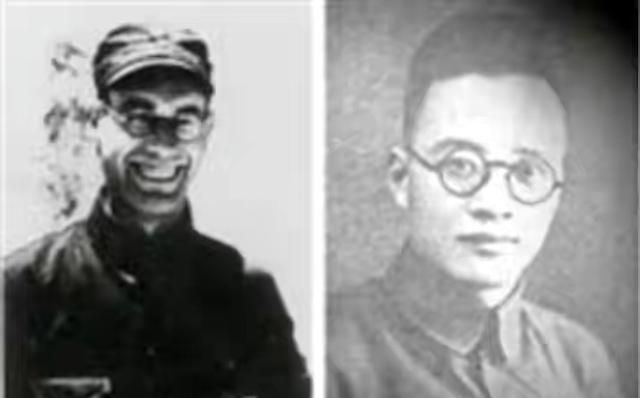In the long river of history, some people have been buried, some people have been praised, and those that can remain in historical memory must have their shining points and unique historical significance. The person we are going to introduce today, Kaifeng, is one of the pearls who has been dusted. He was a loyal Marxist, a staunch communist fighter, but for various reasons he was not well known to the public. In February 1906, Kaifeng was born in Pingxiang, Jiangxi Province, to an ordinary people's family. His original name was He Kequan, because of his young reading, he was more open-minded and progressive, enthusiastic and frank, actively participated in the student movement, and had a hard pen, often writing some articles commenting on current politics. In January 1926, he joined the Communist Youth League to engage in propaganda and theoretical work, and since the beginning of his legendary life.

As a theoretical expert on the return of Russia, Kaifeng officially entered the center of power at the Fifth Plenary Session of the Sixth Central Committee, and has since established his leadership position and irreplaceability. He, along with Wang Ming and Bogu, was a staunch theoretician and a practitioner of the "left-leaning" military movement. He has repeatedly contradicted Chairman Mao in public and made remarks contrary to Chairman Mao at many meetings, especially at the Zunyi Conference, which resolutely opposed the abolition of Bogu's command. These erroneous ideas of his also set a bad tone for his future political stance, his political life was not very long, and there were relatively few records of Kaifeng in historical materials, resulting in the public knowing very little about him.
In the face of Chairman Mao's questioning, Kaifeng's thinking has always been very stubborn, believing that he has advanced theoretical knowledge, while Chairman Mao and others are just "mud legs", and even some arrogantly said, "Who is right, who is wrong, walk and see." It is precisely because Kaifeng's theoretical orientation is a Marxist philosophy based on practice, which shows a relatively serious deviation from The actual needs of China, and later in many meetings of the Central Committee, kaifeng and others have made military mistakes in the "left-leaning" movement, which also left a bad impression on Chairman Mao's heart and laid the brand of "theoretician."
Kaifeng stood on a position that was not entirely correct because of his practice of theory, and this was also a historical necessity that he could not escape as a theoretician; although he contradicted Chairman Mao's many exhortations not to take political purposes as the foundation of the mountain, this did not mean that he was not a staunch revolutionary, he was not wholeheartedly striving for the cause of the liberation of the nation, and he was still an indispensable general of our revolution. With the deepening of the revolution, Kaifeng also gradually realized his shortcomings and slowly transformed from military action to theoretical action. In June 1935, after two months of deliberation, Kaifeng decided to change his mind and embark on a political line of resolutely supporting Chairman Mao. In December 1936, the Xi'an Incident broke out. Due to the suddenness of the incident, Chairman Mao urgently dispatched Kaifeng to accompany him, and Kaifeng briefly analyzed the current situation with theory as the starting point, and actively discussed strategies with Chairman Mao and others, and finally decided to relocate the Red Army University to Yan'an and rename it the Anti-Japanese Military University. This incident also allowed Mao Zedong and others to see Kaifeng's experience and ability in rich theory. Since then, Kaifeng has also played an important role in the most important political events on the Long March.
For example, he keenly captured Zhang Guotao's theoretical errors, and in a short period of time, he cited a large number of internal documents to severely criticize Zhang Guotao's theoretical line, thus firing the first shot of the "anti-Zhang Guotao theoretical movement". Zhang Guotao, as Kaifeng's compatriot, was extremely annoyed by Kaifeng's criticism, and he could not understand Kaifeng's political turn, and immediately launched a "counterattack" campaign against Kaifeng. Kaifeng resolutely opposed Zhang Guotao's act of splitting the Central Committee and splitting the Red Army, and did not fear to retreat in the face of Zhang Guotao's counterattack movement, effectively protecting the unity within the Central Committee, proving that Kaifeng takes Marxism as the political foundation of practice, and can correct mistakes when they know mistakes, be fair and objective, and also show Kaifeng's outstanding theoretical and propaganda talents, and once made Zhang Guotao think that Kaifeng would be the head of the Propaganda Department in the future. However, Kaifeng also almost caused tragedy because of the expansion of the counterattack movement, chairman Mao severely criticized Kaifeng's expansion behavior, and Kaifeng also carried out self-criticism and summary in a timely manner. In September 1941, Kaifeng had become a pivotal figure around Mao Zedong, and Mao Zedong had repeatedly commended Kaifeng for his theoretical work. Unfortunately, due to his once wrong political tone, Kaifeng lost the 1942 Central Committee election.
After the founding of China, Kaifeng was appointed by the central government to serve as the secretary of the municipal party committee, and he resolutely supported Mao Zedong's political line of "strictly meiji party and not engaging in mountains", severely cracked down on Shenyang's "independent kingdom" atmosphere, and did a lot of fruitful work to correct the unhealthy tendencies in Shenyang. Mao Zedong also gave Kaifeng a high praise and evaluation for his work, and vigorously supported Kaifeng's political line of daring to struggle and opposing hegemony. On March 23, 1955, Kaifeng died of illness in Beijing. Although Kaifeng's revolutionary line was biased, he left a rich political legacy for the theoretical and practical line. His important contributions to the revolution, to the people, and to the cause of liberation cannot be indelible, and his lofty qualities of conscientiousness, hard work, recklessness, honesty, and honesty are still worth learning!